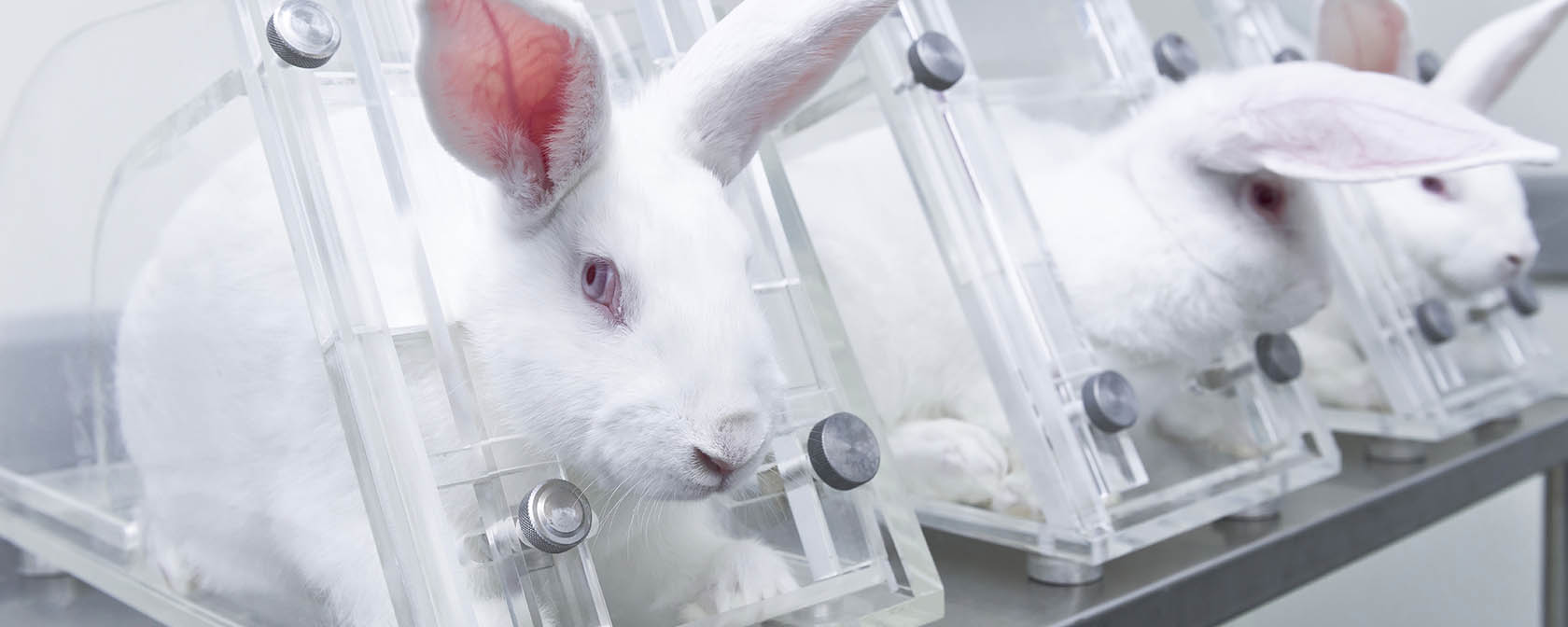By Sara Amundson and Kitty Block
Maryland will soon become the fifth U.S. state to say no to cosmetics testing on animals.
State lawmakers last night voted to prohibit new tests on animals for cosmetics and all sales of newly-animal-tested cosmetics beginning July 2022. The Senate and House versions of the bills passed the Maryland Senate unanimously last night and they passed the House with a large majority, demonstrating the clear support in the state for ending such cruel testing.
The bill now heads to the governor’s desk, where we expect he will either sign it or let it pass into law without his signature.
Maryland joins neighboring Virginia, where Gov. Ralph Northam signed a similar bill into law just earlier this month, and three other states that have passed laws ending new cosmetics testing or sales—California in 2018 followed by Nevada and Illinois in 2019.
The laws reflect rising consumer opinion in the United States against unnecessary testing on animals for products like shampoos, mascara and lipstick. During these tests, rabbits, guinea pigs, mice and rats have substances forced down their throats, dripped into their eyes, or smeared onto their skin before they are killed. Cosmetics companies are listening to consumer concerns and many have joined us to support bills in the states moving to end cosmetics testing sales and production. Maryland lawmakers received letters of support from several companies manufacturing or selling cosmetics products in Maryland, including Lush, MOM’s Organic Market, Jill Turnbull and ReNew Botanicals Skin Care, as they considered the bills.
The Personal Care Products Council, the leading national trade association representing approximately 600 personal care products companies, is also supportive of ending new cosmetics testing and partnered with us during the last Congress to lead the federal Humane Cosmetics Act, a bill addressing cosmetics animal testing and imports. We anticipate the bill will soon be reintroduced in the current Congress.
The United States does not require that cosmetics products be tested on animals. Moreover, these test methods are unreliable predictors of human safety. Different species can respond differently when exposed to the same chemicals. Consequently, animal tests may under- or over-estimate real-world hazards to people. Many non-animal methods have been, and continue to be, developed for new ingredients. These methods can combine human cell-based tests and sophisticated computer models to deliver human-relevant results at less cost and in less time than traditional animal tests.
We applaud Maryland lawmakers for taking this decisive step on behalf of animals, and we are especially grateful to Sen. Clarence Lam and Delegate Terri Hill who sponsored the versions of the bill in the Senate and the House of Delegates. The world is moving away from cosmetics testing, with 40 nations having passed laws to end or limit cosmetic animal testing. In the United States, Hawaii, New Jersey, New York and Rhode Island are considering similar bans. We urge lawmakers in these and other states to move swiftly and end the cruelty for good.
Kitty Block is President and CEO of the Humane Society of the United States.




